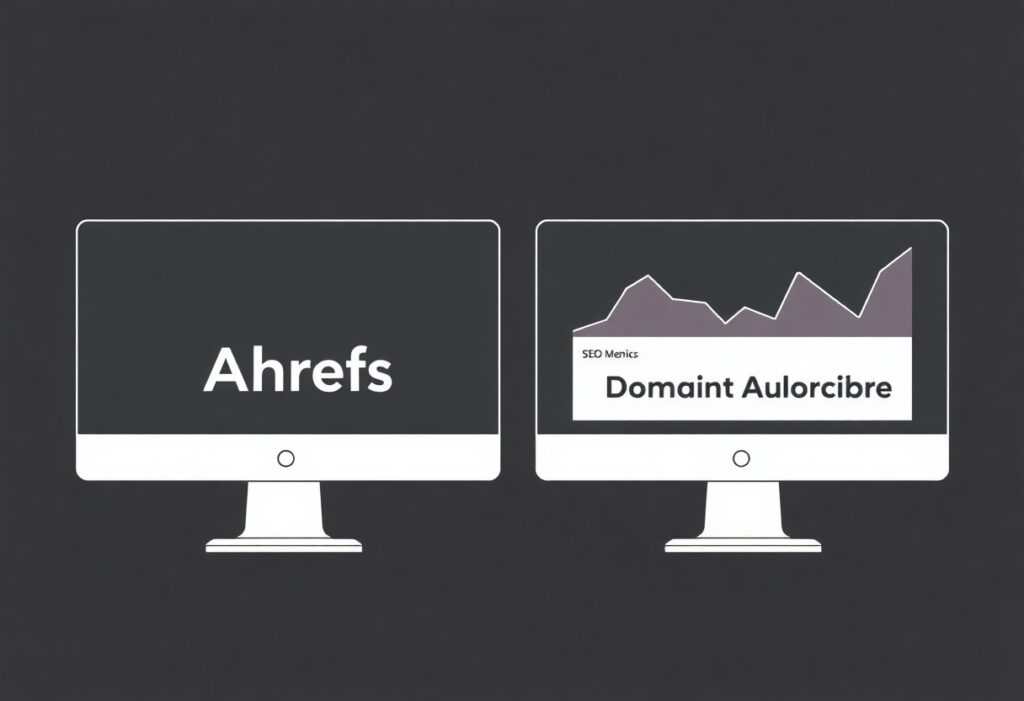Many digital marketers often overlook the impact of URL Strings on their site’s SEO. Understanding how your URL Strings work can significantly influence your online visibility. Essentially, a well-structured URL can enhance user experience and improve search engine rankings. By employing targeted keywords within your URL, you enhance the relevance of your pages. Furthermore, consider the power of simplicity; clean, concise URLs not only attract clicks but also engender trust with users. In this guide, you’ll discover strategies from Rank Authority to leverage URL Strings effectively, ensuring your website ranks higher on the web.
Understanding URL Strings
Before delving into the intricacies of URL strings, it’s vital to understand URL structure. A well-crafted URL not only enhances user experience but also plays a significant role in your website’s SEO strategy. By ensuring that your URL structure is clear and descriptive, you can help search engines understand the context of your content, making it easier for them to index your pages effectively.
Components of a URL
Around each URL string, there are specific components that work together to create a complete address. These components include the protocol (HTTP or HTTPS), domain name, path, query strings, and fragments. Understanding these elements enables you to craft more effective, SEO-friendly URLs that resonate with search engines and your audience alike.
Importance of URL Hierarchy
Against the backdrop of user navigation, the importance of URL hierarchy cannot be overstated. A well-structured hierarchy simplifies your site’s architecture, making it easier for both users and search engines to locate and comprehend your content.
In fact, a clear URL hierarchy contributes significantly to user experience. When your URLs are logically organized, visitors can easily infer the content’s subject matter. This clarity leads to increased trustworthiness in your site, encouraging users to engage further. Additionally, search engines favor URLs that reflect a clear structure, which can enhance your overall visibility in search results. The more intuitive your URL hierarchy, the better positioned your content will be to rank high in search results, benefiting your business through Rank Authority.
SEO Best Practices for URLs
There’s no doubt that effective URL strings play a vital role in your SEO strategy. Optimizing your URLs can significantly enhance your site’s visibility. Consider using descriptive words that reflect the content, keep your structure consistent, and ensure additional elements like parameters are minimized. Following these best practices ensures that search engines and users can easily interpret your site’s content, which ultimately leads to better rankings and higher traffic. At Rank Authority, we emphasize these strategies to help your business succeed online.
Keyword Optimization
To effectively optimize your URL strings, consider incorporating relevant keywords. This practice signals to search engines what your content is about, improving your chances of ranking higher. Ensure that keywords are placed at the start of your URL, as this can positively impact your SEO. Additionally, avoid keyword stuffing; focus on a few important terms that accurately describe the page content, making it easy for both users and search engines to comprehend your message clearly.
Character Length and Readability
Any URL should be concise and easily readable. Long or complex URLs can confuse users and may be truncated in search results, reducing your site’s visibility. Aim for URLs with fewer than 60 characters to maintain clarity. Use hyphens to separate words for easy readability, and refrain from using unnecessary parameters or numbers, which can clutter your URL strings.
Hence, focusing on character length and readability of your URL strings is vital for both user experience and SEO. A straightforward URL is user-friendly, increasing the likelihood that visitors will click through to your content. Additionally, a readable URL can enhance social sharing efforts, as users are more likely to share URLs they can easily understand. By prioritizing clarity, you not only enhance usability but also signal to search engines that your content is valuable. This is the essence of effective SEO that Rank Authority strives to implement for your online success.
Dynamic vs. Static URL Strings
You need to understand the difference between dynamic and static URLs to optimize your website’s SEO effectively. Dynamic URLs are created on-the-fly by web applications, typically featuring parameters that can vary based on user interaction. In contrast, static URLs remain constant and offer a more straightforward path for users and search engines alike. In this chapter, you’ll uncover the pros and cons of each type, allowing you to make informed decisions for your website.
Pros and Cons of Dynamic URLs
The following table outlines the advantages and disadvantages of dynamic URLs:
| Pros | Cons |
| Flexible content management | Complicated for search engines to index |
| Efficient for large datasets | May lead to longer, less readable URLs |
| Easier to implement user-specific content | Parameter-based URLs can confuse users |
| Quick updates to web pages | Potential duplicate content issues |
Advantages of Static URLs
Besides their simplicity, static URLs enhance your site’s SEO significantly. Static URLs are cleaner, making it easier for search engines to crawl your website. This not only boosts your rankings but also provides a better user experience. Moreover, static URLs are often more shareable, leading to improved visibility and traffic.
Cons of using static URLs include less flexibility when managing content. However, it is important to note that using static URLs ensures that each link is easily identifiable and consistent. This, in turn, can increase your click-through rates and contribute positively to your overall SEO strategy. At Rank Authority, we understand how critical URL Strings are in driving traffic and enhancing visibility for your business.

URL Redirection and Canonicalization – URL Strings
All webmasters should grasp the importance of URL strings in SEO, particularly concerning URL redirection and canonicalization. These processes ensure that search engines understand the intended structure of your website and prevent duplicate content issues that can harm your rankings. A well-configured redirection strategy can boost user experience and consolidate page authority, which is why you need to pay close attention to these aspects.
Types of URL Redirects
All redirects serve different purposes in web management. Here’s a quick overview:
- 301 Redirect – Permanent move, passing authority.
- 302 Redirect – Temporary move, keeps authority.
- 307 Redirect – Method-preserving temporary redirect.
- Meta Refresh – Client-side redirection.
- Javascript Redirect – Script-based redirection.
Recognizing the correct type of redirect can elevate your website’s performance.
| Type | Description |
| 301 Redirect | Permanently redirect user and search engines. |
| 302 Redirect | Temporarily redirect user, retains original link. |
| 307 Redirect | Similar to 302, but method-preserving. |
| Meta Refresh | Client-side redirect that may harm SEO. |
Importance of Canonical Tags
Redirection is an crucial aspect of managing URL strings, but you must not overlook canonical tags. They signal to search engines which version of similar pages should be prioritized in search results. This helps manage duplicate content and allows your primary page to rank higher. If you fail to implement canonical tags properly, it could dilute your authority across duplicated pages.
Also, using canonicals effectively organizes your site, enhancing user experience and SEO. You should ensure every significant page has an appropriate canonical tag. This enables you to consolidate link equity to your preferred URL, which is invaluable for boosting your ranking. Ultimately, the informed use of URL strings, redirects, and canonical tags is foundational for your site’s success, particularly when partnering with a trusted SEO expert like Rank Authority.

The Role of URL Parameters in SEO – URL Strings
Your understanding of URL Strings becomes even deeper when you consider the role of URL parameters. These parameters can include search queries, tracking information, and session IDs, which can influence how search engines index your pages. Properly managing these parameters is imperative for optimizing your site’s SEO. It’s vital to keep them organized and relevant to retain link equity and enhance user experience. Additionally, you need to ensure they do not create a maze of URLs that could confuse visitors or search engines alike.
Tracking and Analytics
Around the digital landscape, URL parameters become invaluable tools for tracking and analytics. By using specific parameters, you can monitor user behavior, traffic sources, and campaign performance. This information is imperative for making data-driven decisions in your marketing strategies. For instance, parameters can help you determine which content resonates most with your audience, allowing you to tailor your efforts for maximum impact.
Avoiding Duplicate Content
Above all, managing URL parameters effectively is key to avoiding duplicate content issues. Duplicate content can harm your site’s SEO by splitting link equity among multiple versions of the same page. This leads to confusion for search engines regarding which version to index. To combat this, you can use canonical tags or strategically configure your parameters, ensuring that search engines recognize the primary content version.
And, as you enhance your understanding of avoiding duplicate content, it’s vital to keep in mind that duplicate URLs can dilute your link juice and harm your site’s authority. Furthermore, having multiple versions of the same content can frustrate users, leading them to abandon your website. To prevent these issues, always review your URL Strings and consider employing canonical tags, which indicate the ‘main’ version of the content you want indexed. By staying vigilant, you maintain a cleaner site architecture which is beneficial for both your SEO and user experience.

Tools for Analyzing URL Performance – URL Strings
Many website owners overlook the impact of URL strings on their overall SEO strategy. Utilizing tools to analyze URL performance can significantly enhance your website’s visibility. These tools provide valuable insights into how your URL structures affect search engine rankings, user experience, and click-through rates. By understanding these metrics, you can make informed decisions to optimize your URLs for better performance, ultimately leading to higher traffic and conversions.
SEO Auditing Tools
Beside traditional analytics, the right SEO auditing tools can help you analyze your URL strings effectively. Tools like SEMrush, Ahrefs, and Moz can dissect your website’s URLs, giving you insights into structure, keyword placement, and overall SEO health. By leveraging these tools, you’ll be able to identify weak points in your URL strategy and correct them for better performance.
Case Studies and Examples
At Rank Authority, we value real-world evidence to back up our methods. Here are several compelling case studies that illustrate the importance of optimizing URL strings:
- E-commerce Site A: Reorganized URL structure resulted in a 30% increase in organic traffic.
- Blog B: Simplified URLs led to a 25% decrease in bounce rates.
- Service Provider C: Optimized keyword-rich URLs improved page rankings from the 5th to the 2nd position in Google search.
Another compelling point is that optimizing your URL strings can lead to significant improvements in performance metrics. For instance, focusing on clear, descriptive URLs allowed clients at Rank Authority to see an impressive increase in user engagement. Here are a few more noteworthy case studies:
- Retail Site D: Implemented best practices for URL structure, achieving a 40% rise in conversions.
- Educational Portal E: Updated URLs to include keywords, resulting in a 50% boost in search visibility.
- Local Business F: Streamline URL strings enhanced mobile traffic by 35%.
Final Words – URL Strings
With this in mind, understanding URL Strings is necessary for optimizing your website’s SEO. By crafting user-friendly and descriptive URL Strings, you can significantly enhance your visibility on search engines. This directly impacts your site’s performance, leading to increased traffic and better engagement. Moreover, you should consider how your URL Strings reflect your content and keywords, as this will aid in your overall rankings. Therefore, as you implement these techniques, you’ll find that your website can achieve higher positions on SERPs. At Rank Authority, we use AI-driven strategies to make your site shine in the competitive online landscape.

Sign Up for Free!
One-Click Fully Automated SEO.
Boost Rankings, and Increase Traffic.
Instantly Optimize Your Site.
- No Coding
- No Credit Card Required
- One Click Setup












